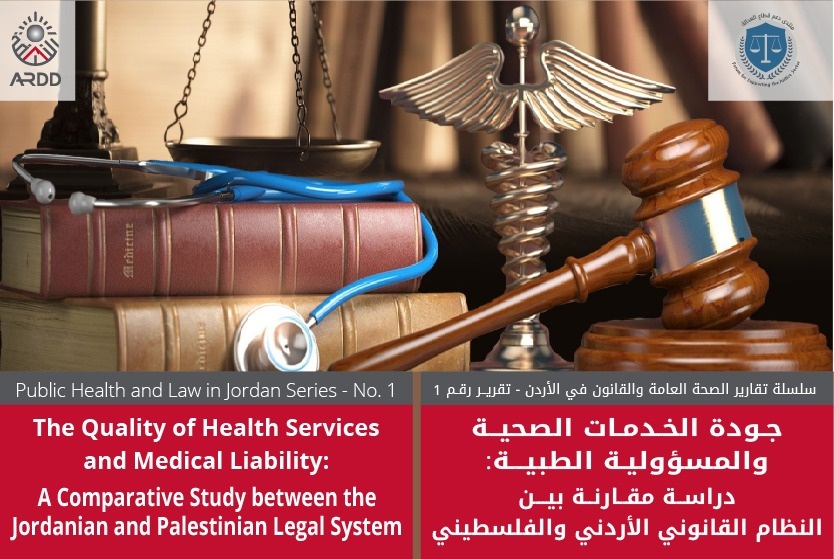within public life, the medical sector is one of the most vital and sensitive sectors due to its direct dealing with individuals’ lives and mental and physical safety, which makes the issue of responsibility within this sector an essential issue that must be addressed to protect both patients and medical service providers.
Jordanian and Palestinian legal systems are characterized by many similarities due to the deep relations that bind the two countries, especially in light of the Jordanian rule of the West Bank, which left many fingerprints in the adoption of Jordanian laws, many of which are still in force today in Palestine. More important, both Jordan and Palestine are among the first countries in the Arab world to have adopted special liability laws in the recent past. In addition, Palestinians benefit from medical services offered in Jordan either as medical tourists, residents, or refugees.
.
The study describes and analyzes how the medical responsibility of health service providers exists within three basic forms: criminal responsibility according to the Jordanian Penal Code No. 16 of 1960 and the Egyptian Penal Code No. 73 of 1936, civil responsibility according to the Jordanian Civil Law and the Code of Judicial Provisions, and administrative responsibility in accordance with the laws of the Medical Syndicate. In addition, the study analyzes the special laws regulating medical liability, namely, the Jordanian Medical and Health Liability Law No. 25 of 2018, and the Palestinian Decree No. 31 of 2018 regarding medical protection and safety.
The study concludes that the issue of medical responsibility still faces many difficulties and obstacles in Jordan and Palestine, highlighting two aspects:
a. Although there are special laws regulating medical liability cases, they did not address the issue of medical liability directly, which prompts the parties to return to the general civil, criminal, and administrative laws.
b. Evidence and the burden of proof issues are one of the obstacles facing the parties, especially patients, in proving the occurrence of a medical error and the damage resulting from it.
Based on the legal analysis, the study also offers a set of recommendations, the most prominent of which can be mentioned as follows:
1- A reformulation of the legal aspects of medical liability within a private law instead of keeping it under the general laws.
2- With regard to criminal responsibility, in particular, the legislator must create a legal template for a new crime in the special section of the Penal Code and not be satisfied with leaving the matter to the general rules.
3- Reconsidering the judicial readiness of the courts to consider cases of medical errors.
4- Reconsider the procedures followed before the courts and the competent authorities.
5- Pushing for more activation of the role of special committees in the health liability laws of 2018 in both Palestine and Jordan.


